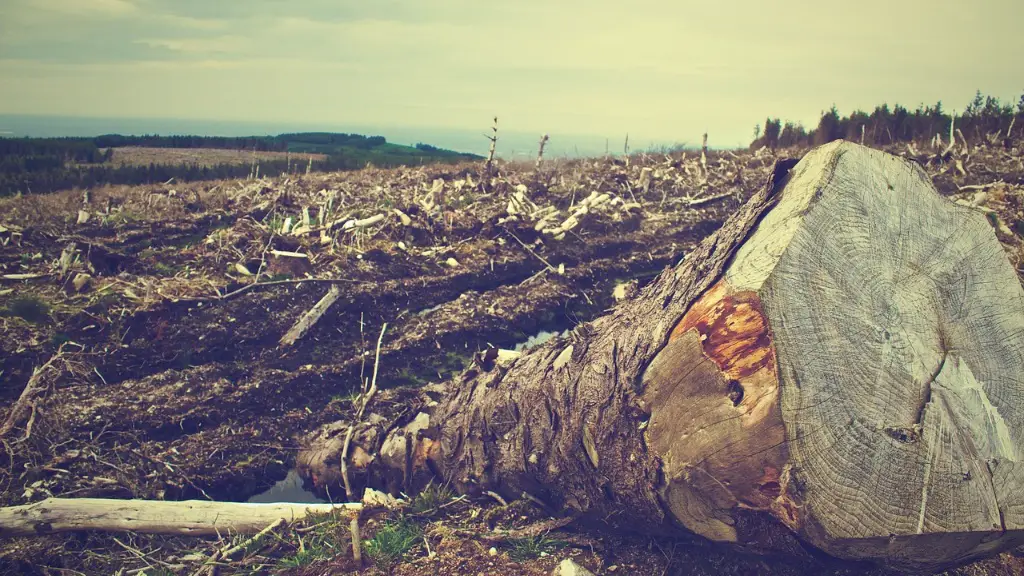Ecology is the study of how organisms interact with each other and their environment. This can provide support for evolution in a few ways. For example, if a species is better suited to its environment, it is more likely to survive and reproduce. This can lead to the species changing over time to become better adapted to its environment. Additionally, if a species is introduced to a new environment, it may be less well-suited to that environment and have a lower chance of survival. However, if the environment has some similarity to the species’ original environment, the species may be able toadapt to the new environment and survive.
Ecology is the study of how organisms interact with their environment. This interaction can include how the organism obtains food, shelter, and mates. Ecology can also include the study of how an organism affects its environment.
Evolution is the process by which populations of organisms change over time in response to their environment. Natural selection is one mechanism of evolution, and it occurs when some individuals in a population are better suited to their environment than others. These individuals are more likely to survive and reproduce, and over time, they will come to dominate the population.
Ecology and evolution are tightly linked because the environment is a major factor in shaping the characteristics of a population. The environment can cause changes in the frequencies of certain genes, and these changes can lead to new traits appearing in a population. The environment can also select for or against certain traits. For example, if a particular trait makes an organism more likely to survive and reproduce, that trait will become more common in the population over time.
How does ecology play a role in evolution?
Ecological processes can influence evolutionary change by altering natural selection. This, in turn, can alter the genetic frequency underlying phenotypic traits. For example, if a particular species becomes more or less common in an ecosystem, the traits that help it survive and reproduce will become more or less common in the population as a whole. Over time, this can lead to changes in the overall appearance of the population.
Ecology and evolutionary biology are both important scientific fields of study that help us to understand the world around us. Ecology studies the interactions between organisms and their environment, while evolutionary biology studies the evolutionary process that produces and modifies the diversity of life on earth. Both of these fields are essential for understanding the natural world and the complex web of life that exists within it.
What is evolution in ecology
Evolution is the change in the inherited traits of a population of organisms through successive generations. When living organisms reproduce, they pass on to their progeny a collection of traits. These traits may be beneficial, neutral, or harmful to the organism’s survival and reproduction. Over time, the frequency of traits that are beneficial to the survival and reproduction of the organism will increase, while the frequency of harmful traits will decrease. This process is known as natural selection.
A classic example of competition within a species causing evolution was demonstrated with a species of finches on the Galapagos Island. Changes in the environment caused a decrease in the amount of the seeds that the finches were use to eating. The finches with the longer beaks were able to eat the larger seeds and compete for food, while the finches with the shorter beaks went extinct.
Why is ecology so important?
Ecology is important for a number of reasons. Firstly, it helps us to understand the interdependence between people and nature. This is important for food production, as we need to know how to manage resources in a way that doesn’t damage the environment. Secondly, ecology is crucial for maintaining clean air and water. If we don’t have a healthy environment, we won’t have clean air or water to sustain us. Finally, ecology is important for sustaining biodiversity in a changing climate. As the climate changes, we need to make sure that we’re not damaging the delicate balance of nature.
Ecology is the study of how organisms interact with each other and their physical environment. It helps us understand how different species live together in unique ecosystems. By understanding ecology, we can learn how to protect and conserve our natural world.
What is the impact factor of ecology and evolutionary biology?
So, yes, we do have an impact factor: the 2021 impact factor for Ecology and Evolution is 317. This means that, on average, each article published in our journal in 2019 and 2020 was cited 317 times in 2021.
There is a strong relationship between ecology and evolutionary biology – organisms evolve because they are in an ecological relationship with other organisms of their environment, and because the environment itself influences their evolution via natural selection. This means that the two disciplines are inseparable – a deep understanding of one requires a deep understanding of the other.
What is the relationship of Ecology and Evolution of disease
Disease ecology is a relatively new field that is rapidly gaining popularity due to its interdisciplinary nature. It combines aspects of epidemiology, ecology, and evolutionary biology to better understand the patterns and processes of infectious diseases. Disease ecology focuses on host-pathogen systems in the context of their environment and evolution, analyzing how species interactions and abiotic components of the environment affect patterns and processes of infectious diseases. This approach has led to a better understanding of the transmission and evolution of diseases, as well as the development of novel control strategies.
Ecological-evolutionary theory (EET) is a sociological theory of sociocultural evolution that attempts to explain the origin and changes of society and culture. Key elements focus on the importance of natural environment and technological change. The theory is based on the premise that social change is a result of the interaction between cultural and environmental factors.
EET has been used to explain a wide range of social phenomena, including the rise of civilizations, the spread of Christianity, and the Industrial Revolution. Supporters of the theory argue that it offers a more holistic approach to understanding social change than other theories, such as those that focus exclusively on economic or political factors.
What is the main source of evolution?
Darwin and a scientific contemporary of his, Alfred Russel Wallace, proposed that evolution occurs because of a phenomenon called natural selection. In the theory of natural selection, organisms produce more offspring than are able to survive in their environment. The organisms that are best adapted to their environment are more likely to survive and reproduce, while the ones that are less adapted are more likely to die off. Over time, this process can lead to the development of new species.
Population ecology looks at how populations interact with each other and with their environment.
Behavioral ecology focuses on how animals behave in order to survive and reproduce.
What are three examples of evidence for evolution
There are many lines of evidence for evolution. One is the existence of ancient organisms remains. By studying the fossils of these ancient organisms, scientists can learn about the history of life on Earth and how different organisms have changed over time. Another line of evidence is the fossil layers in the Earth’s crust. These layers can be used to date the fossils found within them and to reconstruct the Earth’s history. Additionally, there are similarities among living organisms. For example, all vertebrates have a backbone, and all mammals have hair. These similarities indicate that these groups of organisms have a common ancestor. Finally, similarities of embryos also provide evidence for evolution. For example, human embryos have gills, which they lose as they develop into adults. This indicates that humans share a common ancestor with fish.
The study of ecology can provide individuals with a greater understanding of the damage that we cause to the environment. By understanding how our actions impact the environment, we can make informed choices that can help to reduce the amount of damage we cause. Additionally, ecology can help to predict how much damage can be caused by certain actions, allowing us to take steps to avoid causing irreparable harm. By understanding the importance of ecology, we can play a role in preserving our planet for future generations.
What are the benefits of ecology in humanity?
The natural processes of the Earth play a vital role in sustaining life and making the planet habitable for humans. These processes include the purification of air and water, detoxification and decomposition of wastes, regulation of climate, regeneration of soil fertility, and production and maintenance of biodiversity. These processes are essential for the production of food, water, and other resources that we rely on for our survival.
Ecology is the study of how organisms interact with their environment. By bring the idea of nature down to earth, ecology becomes the very stuff of our everyday lives. The crowded street in our neighborhood, the water with which we wash our clothes, both sky scraper and smoke-stack, as well as the plants, animals, and other creatures with whom we share this planet are all connected in some way. By understanding these connections, we can learn how to protect and conserve our environment.
Conclusion
Ecology provides the conditions and resources that allow species to evolve. By shaping the environments in which species live, ecology determines which organisms are able to survive and reproduce, and therefore which traits are passed on to future generations. In this way, ecology plays a fundamental role in supporting the process of evolution.
The study of ecology supports the theory of evolution by providing evidence that populations of organisms can change over time in response to their environment. This change can be seen in the way that different species adapt to their surroundings, as well as in the way that they interact with other organisms. By understanding how these processes work, we can better understand the history of life on Earth and how it has led to the diversity of life that we see today.





